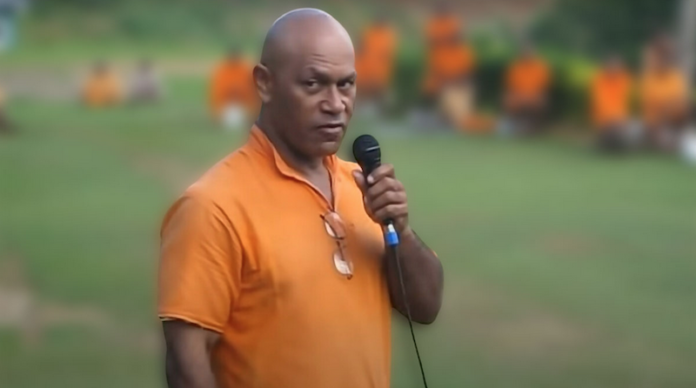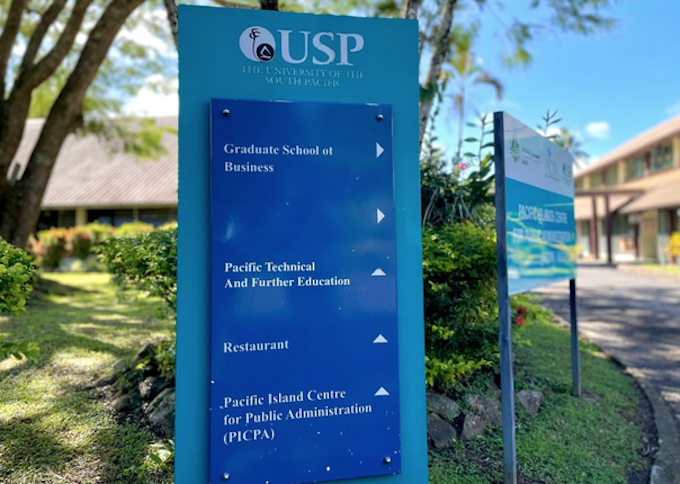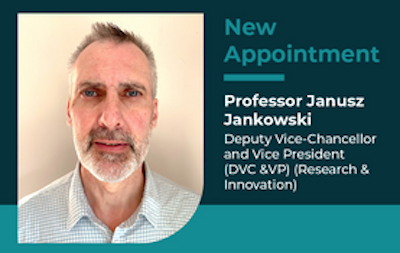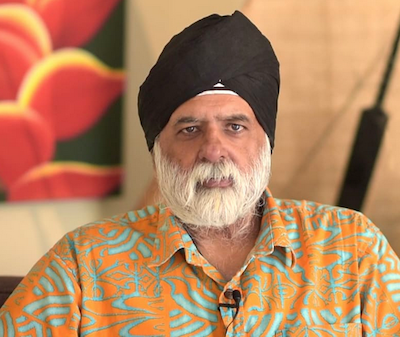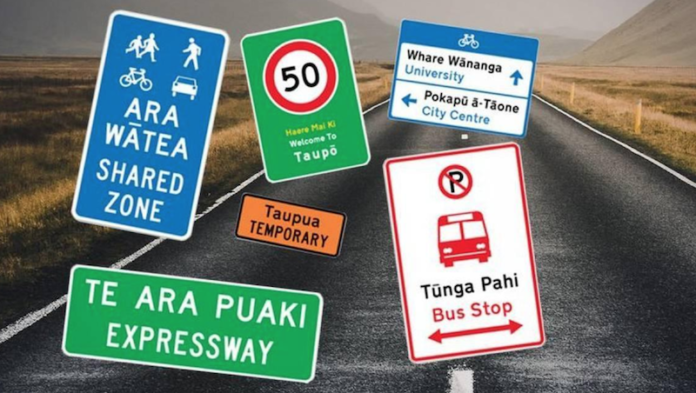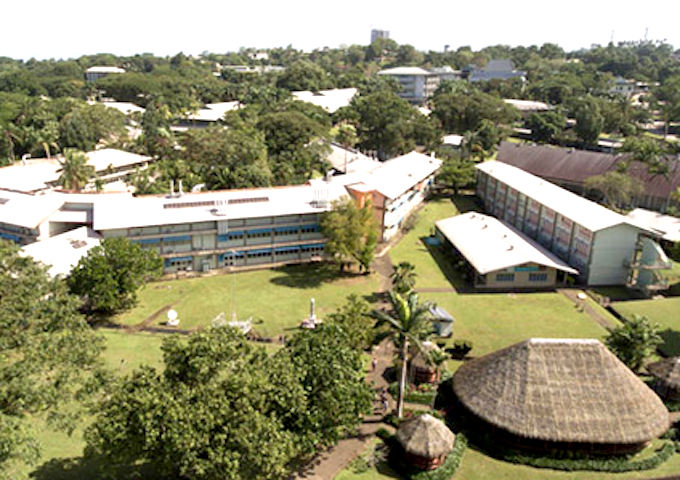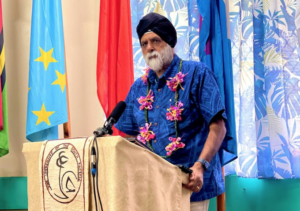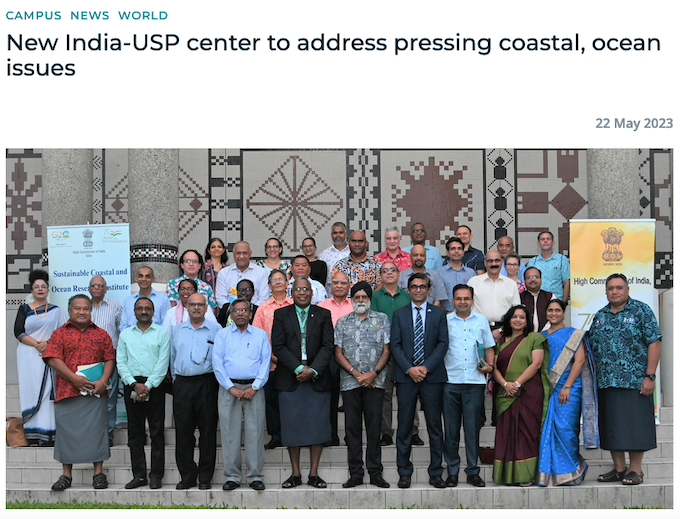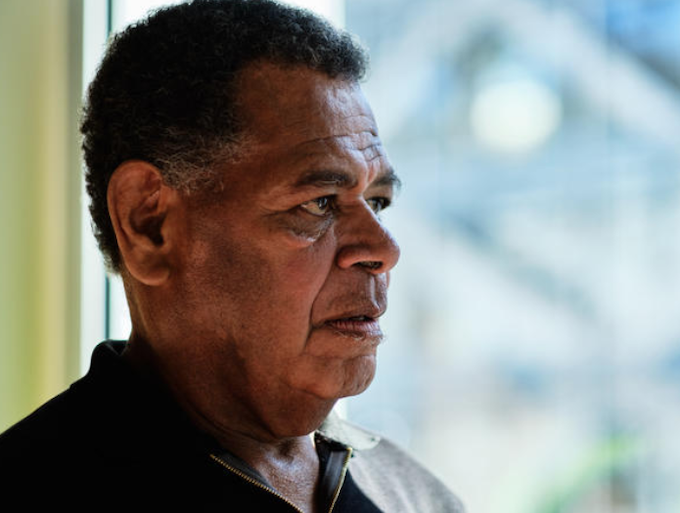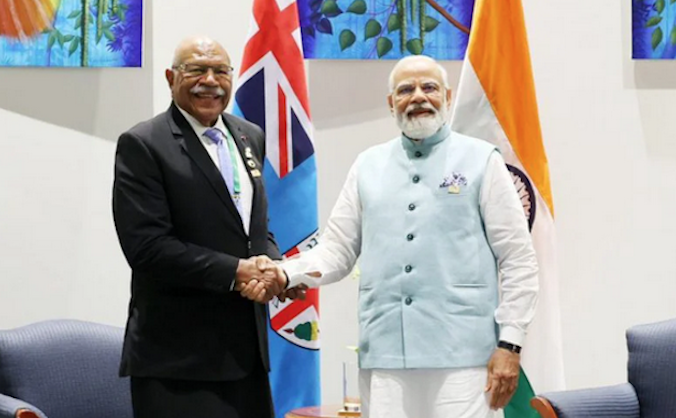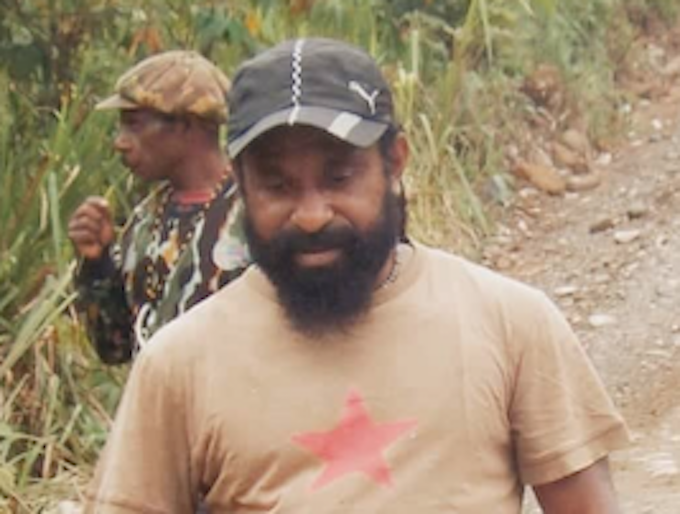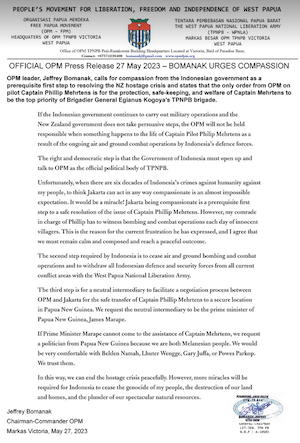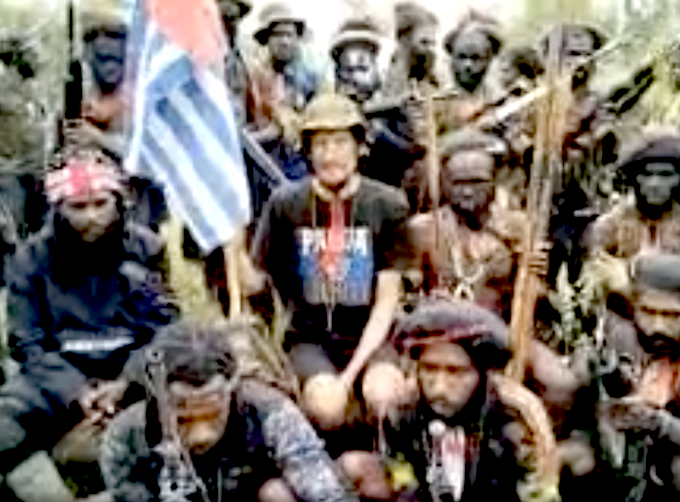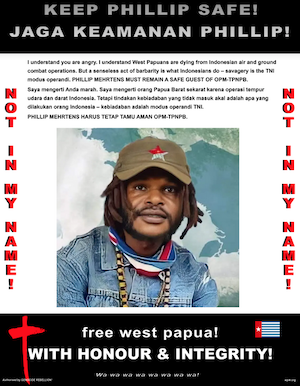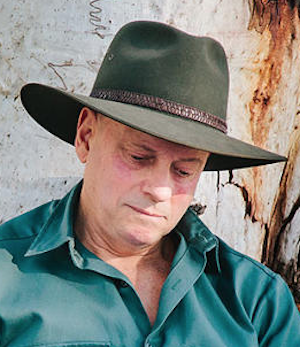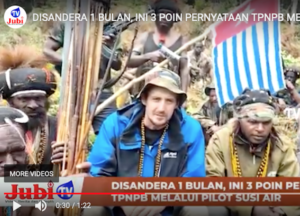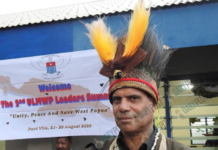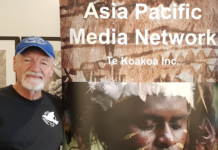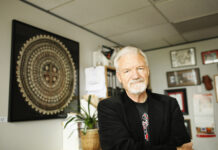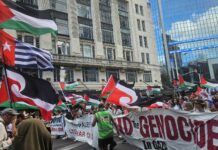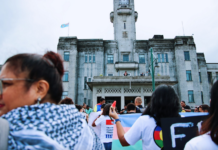By concerned citizens of the Pacific
The signing of the memorandum of understanding between the University of the South Pacific’s vice-chancellor and president, Professor Pal Ahluwalia, and the Indian government’s National Centre for Coastal Research (Ministry of Earth Sciences) in March for the setting up of a Sustainable Coastal and Ocean Research Institute (SCORI) has raised serious questions about leadership at USP.
Critics have been asking how this project poses significant risk to the credibility of the institution as well as the security of ocean resources and knowledge sovereignty of the region.
The partnership was formally launched last week by India’s High Commissioner to Fiji, Palaniswamy Subramanyan Karthigeyan, but the questions remain.
Regional resource security threat
Article 8 of the MOU regarding the issue of intellectual property and commercialisation
states:
“In case research is carried out solely and separately by the Party or the research results are obtained through sole and separate efforts of either Party, The Party concerned alone will apply for grant of Intellectual Property Right (IPR) and once granted, the IPR will be solely owned by the concerned Party.”
This is a red flag provision which gives the Indian government unlimited access to scientific data, coastal indigenous knowledge and other forms of marine biodiversity within the 200 mile exclusive economic zone (EEZ) and territorial waters of sovereign countries in the Pacific.
More than that, through the granting of IPR, it will claim ownership of all the data and indigenous knowledge generated. This has potential for biopiracy, especially the theft of local knowledge for commercial purposes by a foreign power.
No doubt this will be a serious breach of the sovereignty of Pacific Island States whose ocean resources have been subjected to predatory practices by external powers over the years.
The coastal indigenous knowledge of Pacific communities have been passed down over generations and the UN’s World Intellectual Property Organisations (WIPO) has developed protocols to protect indigenous knowledge to ensure sustainability and survival of vulnerable groups.
The MOU not only undermines the spirit of WIPO, it also threatens the knowledge sovereignty of Pacific people and this directly contravenes the UN Convention of Biodiversity which attempts to protect the knowledge of biodiversity of indigenous communities.
In this regard, it also goes against the protective intent of the UN Convention on the Rights of Indigenous Peoples which protects resources of marginalised groups.
This threat is heightened by the fact that the Access Benefit and Sharing protocol under the Nagoya Convention has not been developed in most of the Pacific Island Countries. Fiji has developed a draft but it still needs to be refined and finalised and key government departments are aware of it.
Traditional knowledge of coastal eco-systems of Pacific people are critical in mitigation and adaptation to the increasing threat of climate change as well as a means of collective survival.
For Indian government scientists (who will run the institute), masquerading as USP academics, claiming ownership of data generated from these knowledge systems will pose serious issues of being unethical, culturally insensitive, predatory and outright illegal in relation to the laws of the sovereign states of the Pacific as well as in terms of international
conventions noted above.
Furthermore, India, which is a growing economic power, would be interested in Pacific Ocean resources such as seabed mining of rare metals for its electrification projects as well as reef marine life for medicinal or cosmetic use and deep sea fishing.
The setting up of SCORI will enable the Indian government to facilitate these interests using USP’s regional status as a Trojan horse to carry out its agenda in accessing our sea resources across the vast Pacific Ocean.
India is also part of the QUAD Indo-Pacific strategic alliance which also includes the US, Australia and Japan.
There is a danger that SCORI will, in implicit ways, act as India’s strategic maritime connection in the Pacific thus contributing to the already escalating regional geo-political contest between China and the “Western” powers.
This is an affront to the Pacific people who have been crying out for a peaceful and harmonious region.
The 2050 Strategy for the Blue Pacific Continent, signed by the leaders of the Pacific, tries to guard against all these. Just a few months after the strategy was signed, USP, a regional
institution, has allowed a foreign power to access the resources of the Blue Pacific Continent without the consent and even knowledge of the Pacific people.
So in short, USP’s VCP, Professor Pal Ahluwalia, has endorsed the potential capture of the sovereign ownership of our oceanic heritage and opening the window for unrestricted exploitation of oceanic data and coastal indigenous knowledge of the Pacific.
This latest saga puts Professor Ahluwalia squarely in the category of security risk to the region and regional governments should quickly do something about it before it is too late, especially when the MOU had already been signed and the plan is now a reality.
Together with Professor Sushil Kumar (Director of Research) and Professor Surendra Prasad (Head of the School of Agriculture, Geography, Ocean and Natural Sciences), both of whom are Indian nationals, he has to be answerable to the leaders and people of the region.
Usurpation of state protocol
The second major issue relates to why the Fiji government was not part of the agreement, especially because a foreign government is setting up an institute on Fiji’s territory.
This is different from the regular aid from Australia, New Zealand and even China where state donors maintain a “hands-off” approach out of respect for the sovereignty of Fiji as well as the independence of USP as a regional institution.
In this case a foreign power is actually setting up an entity in Fiji’s national realm in a regional institution.
As a matter of protocol, was the Fiji government aware of the MOU? Why was there no relevant provision relating to the participation of the Fiji government in the process?
This is a serious breach of political protocol which Professor Ahluwalia has to be accountable for.
Transparency and consultation
For such a major undertaking which deals with Pacific Ocean resources, coastal people’s livelihood and coastal environment and their potential exploitation, there should have been a more transparent, honest and extensive consultation involving governments, regional organisations, civil society and communities who are going to be directly affected.
This was never done and as a result the project lacks credibility and legitimacy. The MOU itself provided nothing on participation of and benefits to the regional governments, regional organisations and communities.
In addition, the MOU was signed on the basis of a concept note rather than a detailed plan
of SCORI. At that point no one really knew what the detailed aims, rationale, structure,
functions, outputs and operational details of the institute was going to be.
There is a lot of secrecy and manoeuvrings by Professor Ahluwalia and academics from mainland India who are part of a patronage system which excludes regional Pacific and Indo-Fijian scholars.
Undermining of regional expertise
Regional experts on ocean, sustainability and climate at USP were never consulted, although some may have heard of rumours swirling around the coconut wireless. Worse still, USP’s leading ocean expert, an award-winning regional scholar of note, was sidelined and had to resign from USP out of frustration.
The MOU is very clear about SCORI being run by “experts” from India, which sounds more like a takeover of an important regional area of research by foreign researchers.
These India-based researchers have no understanding of the Pacific islands, cultures, maritime and coastal environment and work being done in the area of marine studies in the Pacific. The sidelining of regional staff has worsened under the current VCP’s term.
Another critical question is why the Indian government did not provide funding for the
existing Institute of Marine Resources (IMR) which has been serving the region well for
many years. Not only will SCORI duplicate the work of IMR, it will also overshadow its operation and undermine regional expertise and the interests of regional countries.
Wake up to resources capture
The people of the Pacific must wake up to this attempt at resources capture by a big foreign power under the guise of academic research.
Our ocean and intellectual resources have been unscrupulously extracted, exploited and stolen by corporations and big powers in the past. SCORI is just another attempt to continue this predatory and neo-colonial practice.
The lack of consultation and near secrecy in which this was carried out speaks volume about a conspiratorial intent which is being cunningly concealed from us.
SCORI poses a serious threat to our resource sovereignty, undermines Fiji’s political
protocol, lacks transparency and good governance and undermines regional expertise. This
is a very serious abuse of power with unimaginable consequences to USP and indeed the
resources, people and governments of our beloved Pacific region.
This has never been done by a USP VC and has never been done in the history of the Pacific.
The lack of consultation in this case is reflective of a much deeper problem. It also manifests ethical corruption in the form of lack of transparency, denial of support for regional staff, egoistic paranoia and authoritarian management as USP staff will testify.
This has led to unprecedented toxicity in the work environment, irretrievable breakdown of basic university services and record low morale of staff. All these have rendered the university dysfunctional while progressively imploding at the core.
If we are not careful, our guardianship of “Our Sea of Islands,” a term coined by the intellectually immortal Professor Epeli Hau’ofa, will continue to be threatened. No doubt Professor Hau’ofa will be wriggling around restlessly in his Wainadoi grave if he hears about this latest saga.
This article has been contributed to Asia Pacific Report by researchers seeking to widen debate about the issues at stake with the new SCORI initiative.


